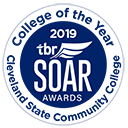Median wages
$51,180
Conduct investigations to prevent crimes or solve criminal cases.
- Provide testimony as a witness in court.
- Check victims for signs of life, such as breathing and pulse.
- Obtain facts or statements from complainants, witnesses, and accused persons and record interviews, using recording device.
- Secure deceased body and obtain evidence from it, preventing bystanders from tampering with it prior to medical examiner's arrival.
- Record progress of investigation, maintain informational files on suspects, and submit reports to commanding officer or magistrate to authorize warrants.
- Prepare charges or responses to charges, or information for court cases, according to formalized procedures.
- Obtain evidence from suspects.
- Examine crime scenes to obtain clues and evidence, such as loose hairs, fibers, clothing, or weapons.
- Preserve, process, and analyze items of evidence obtained from crime scenes and suspects, placing them in proper containers and destroying evidence no longer needed.
- Obtain summary of incident from officer in charge at crime scene, taking care to avoid disturbing evidence.
- Note, mark, and photograph location of objects found, such as footprints, tire tracks, bullets and bloodstains, and take measurements of the scene.
- Examine records and governmental agency files to find identifying data about suspects.
- Take photographs from all angles of relevant parts of a crime scene, including entrance and exit routes and streets and intersections.
- Secure persons at scene, keeping witnesses from conversing or leaving the scene before investigators arrive.
- Provide information to lab personnel concerning the source of an item of evidence and tests to be performed.
- Videotape scenes where possible, including collection of evidence, examination of victim at scene, and defendants and witnesses.
- Analyze completed police reports to determine what additional information and investigative work is needed.
- Prepare and serve search and arrest warrants.
- Question individuals or observe persons and establishments to confirm information given to patrol officers.
- Participate or assist in raids and arrests.
- Organize scene search, assigning specific tasks and areas of search to individual officers and obtaining adequate lighting as necessary.
- Summon medical help for injured individuals and alert medical personnel to take statements from them.
- Notify command of situation and request assistance.
- Block or rope off scene and check perimeter to ensure that entire scene is secured.
- Notify, or request notification of, medical examiner or district attorney representative.
- Note relevant details upon arrival at scene, such as time of day and weather conditions.
- Maintain surveillance of establishments to obtain identifying information on suspects.
- Monitor conditions of victims who are unconscious so that arrangements can be made to take statements if consciousness is regained.
- Coordinate with outside agencies and serve on interagency task forces to combat specific types of crime.
- Schedule polygraph tests for consenting parties and record results of test interpretations for presentation with findings.
- Observe and photograph narcotic purchase transactions to compile evidence and protect undercover investigators.
- Data base user interface and query software — DataWorks Plus Digital CrimeScene; Integrated Automated Fingerprint Identification System IAFIS; National Crime Information Center NCIC database; National Integrated Ballistics Information Network NIBIN
- Desktop publishing software — Microsoft Publisher
- Graphics or photo imaging software — Adobe Systems Adobe Photoshop; Digital Image Management Solutions Crime Scene; Microsoft Visio; The CAD Zone The Crime Zone
- Internet browser software — Web browser software
- Map creation software — Crime mapping software; Geographic information system GIS software
- Office suite software — Corel WordPerfect; Microsoft Office
- Presentation software — Microsoft PowerPoint
- Spreadsheet software — Microsoft Excel
- Word processing software — Microsoft Word
![]() Hot Technology — a technology requirement frequently included in employer job postings.
Hot Technology — a technology requirement frequently included in employer job postings.
- Active Listening — Giving full attention to what other people are saying, taking time to understand the points being made, asking questions as appropriate, and not interrupting at inappropriate times.
- Critical Thinking — Using logic and reasoning to identify the strengths and weaknesses of alternative solutions, conclusions or approaches to problems.
- Speaking — Talking to others to convey information effectively.
- Complex Problem Solving — Identifying complex problems and reviewing related information to develop and evaluate options and implement solutions.
- Reading Comprehension — Understanding written sentences and paragraphs in work related documents.
- Social Perceptiveness — Being aware of others' reactions and understanding why they react as they do.
- Judgment and Decision Making — Considering the relative costs and benefits of potential actions to choose the most appropriate one.
- Writing — Communicating effectively in writing as appropriate for the needs of the audience.
- Active Learning — Understanding the implications of new information for both current and future problem-solving and decision-making.
- Monitoring — Monitoring/Assessing performance of yourself, other individuals, or organizations to make improvements or take corrective action.
- Time Management — Managing one's own time and the time of others.
- Coordination — Adjusting actions in relation to others' actions.
- Persuasion — Persuading others to change their minds or behavior.
- Service Orientation — Actively looking for ways to help people.
- Instructing — Teaching others how to do something.
- Learning Strategies — Selecting and using training/instructional methods and procedures appropriate for the situation when learning or teaching new things.
- Negotiation — Bringing others together and trying to reconcile differences.
- Systems Analysis — Determining how a system should work and how changes in conditions, operations, and the environment will affect outcomes.
- Systems Evaluation — Identifying measures or indicators of system performance and the actions needed to improve or correct performance, relative to the goals of the system.










